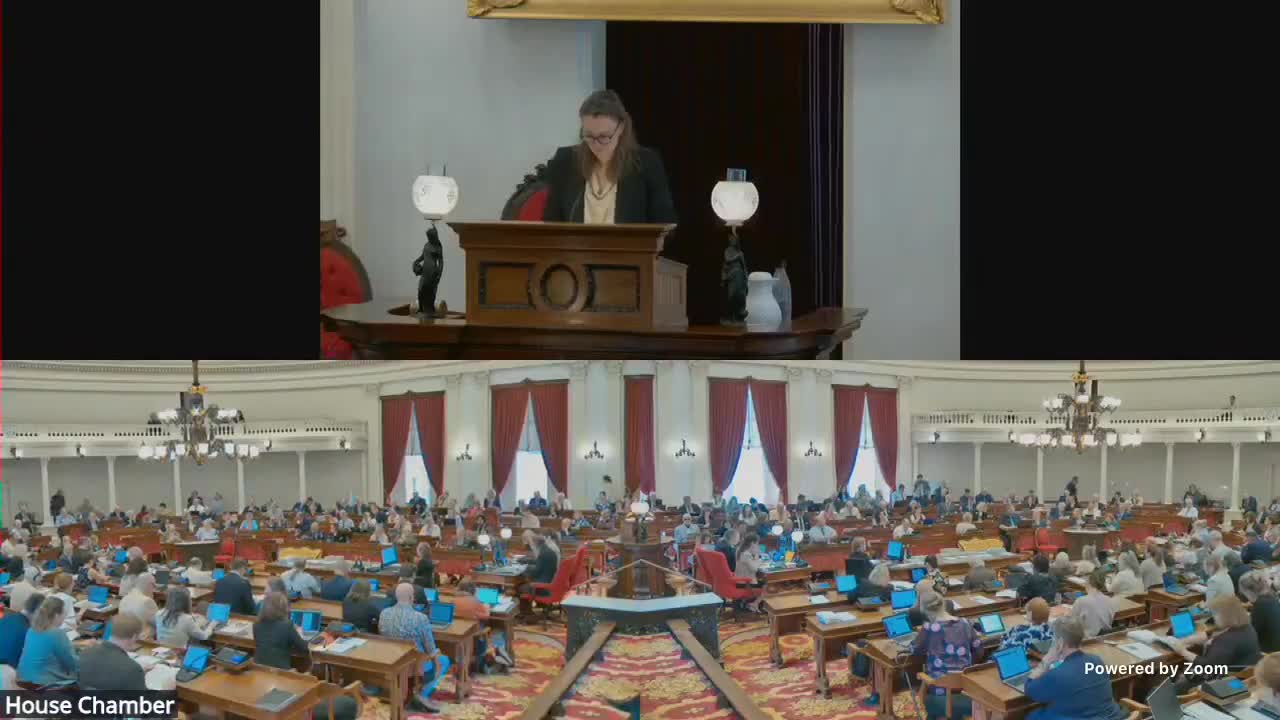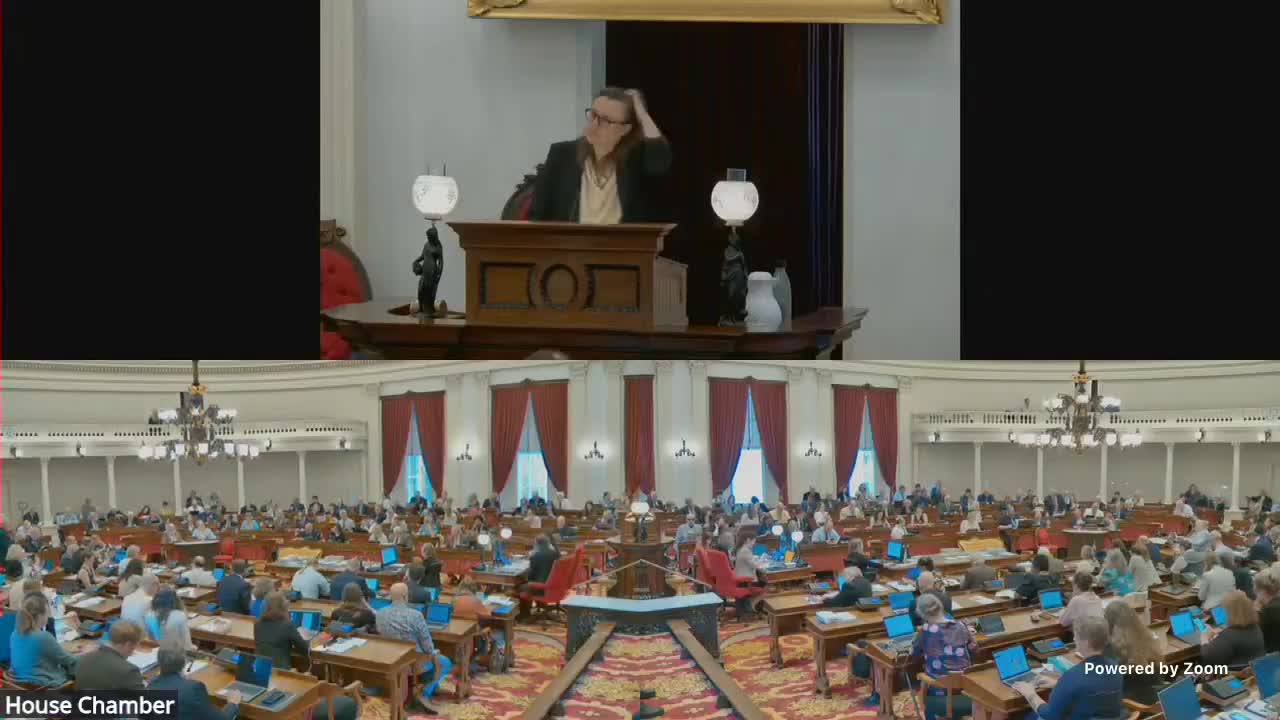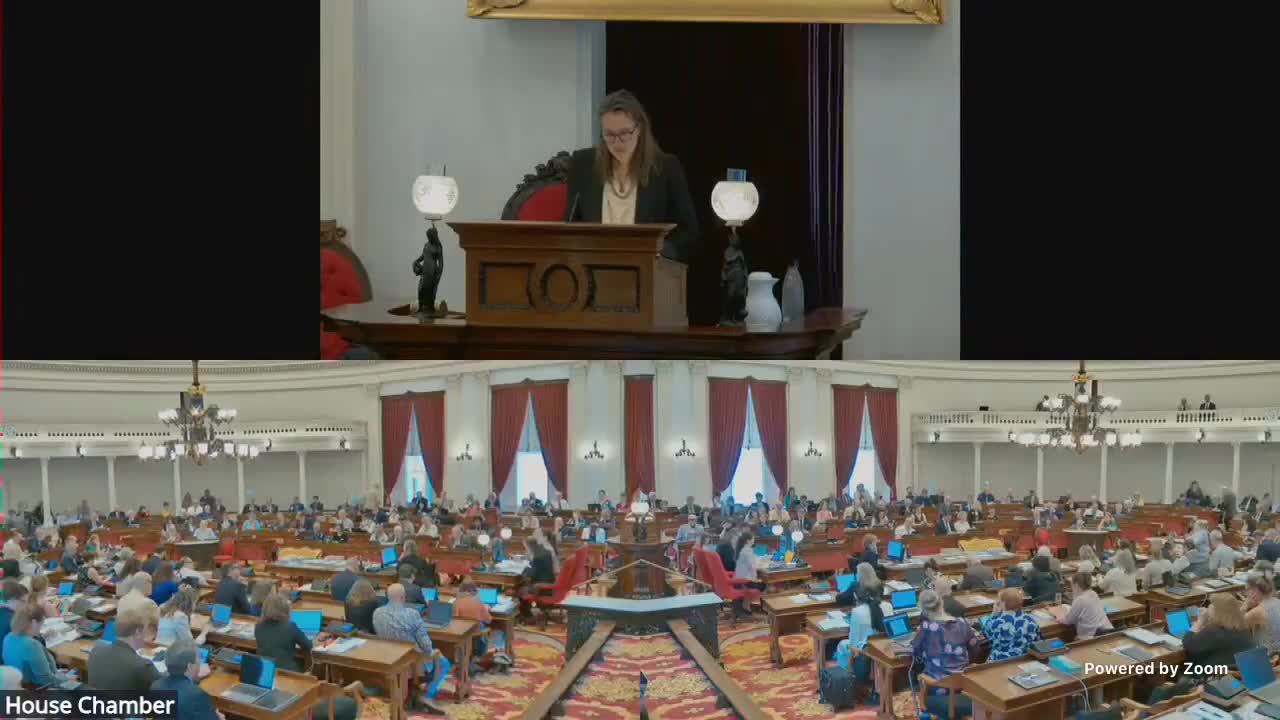Article not found
This article is no longer available. But don't worry—we've gathered other articles that discuss the same topic.

House concurs in amended cannabis bill after removing proposed license categories; debate focuses on small cultivator market access

House concurs on miscellaneous agriculture bill; extends deadlines for Ryegate biomass milestones

House proposes amendment to bill requiring disclosure of AI-generated synthetic media in 90-day pre-election window

House adopts committee-of-conference report on motor-vehicle bill, defers some implementation dates

